
Journal Menu
► ▼ Journal Menu-
- Mathematics Home
- Aims & Scope
- Editorial Board
- Reviewer Board
- Topical Advisory Panel
- Instructions for Authors
- Special Issues
- Topics
- Sections & Collections
- Article Processing Charge
- Indexing & Archiving
- Editor’s Choice Articles
- Most Cited & Viewed
- Journal Statistics
- Journal History
- Journal Awards
- Society Collaborations
- Conferences
- Editorial Office
Journal Browser
► ▼ Journal BrowserNeed Help?
Announcements
5 June 2024
MDPI Sets a New Benchmark for Publishing Excellence
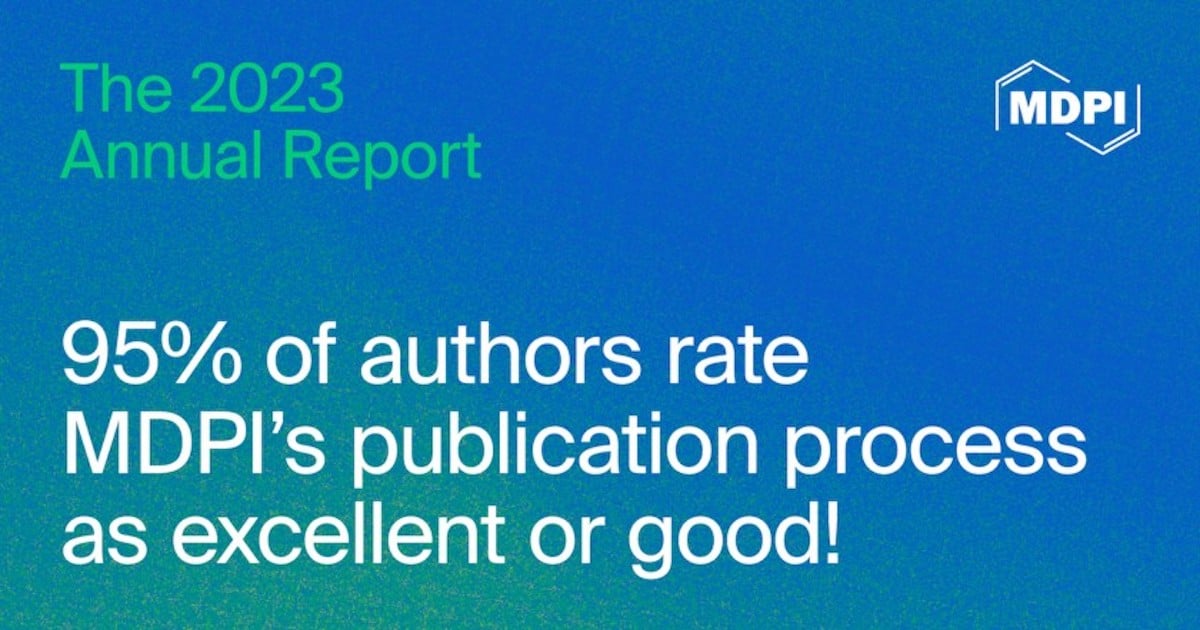
95% of authors rate MDPI’s publication process as excellent or good, setting a new benchmark in scientific publishing – reveals 2023 Annual Report.
Basel, Switzerland, June 4, 2024: MDPI, the leading open access (OA) publisher, proudly announces the release of its 2023 Annual Report, detailing remarkable achievements and reaffirming its leadership in advancing OA publishing. In 2023, MDPI received 655,065 submissions, of which 285,244 articles were published. The company now commands a 17% market share in gold open access articles, with a median publication time of six weeks.
Stefan Tochev, MDPI's CEO, stated, "As a pioneer in open access publishing, MDPI has long been a game-changer in the scholarly community, serving millions of authors around the world to ensure the latest research is freely available. Reflecting on our incredible journey at MDPI, 2023 has been marked by growth in paper submissions, ambitious projects and initiatives aimed at improving our internal processes and delivering top-notch services to our scientists."
MDPI's 2023 Annual Report highlights several key achievements:
- 17% market share in gold open access articles across all disciplines.
- Record satisfaction rates: 95% of authors, 82% of reviewers, and 85% of guest editors.
- Enhanced editorial standards and feedback processes.
- Increased reach and impact with 54 new MDPI journal inclusions in Scopus, 29 in Web of Science, and 77 in DOAJ.
MDPI’s unwavering commitment to advancing OA has transformed the landscape of scholarly publishing, making high-quality research freely accessible to the global scientific community. The continuous improvement in our editorial standards and feedback processes underscores MDPI’s dedication to ensuring academic integrity and excellence.
Global Reach and Collaboration
MDPI’s global footprint continues to expand, with authors from diverse regions: 37% from Asia/Pacific, 36% from Europe, 15% from the Americas, and 12% from other parts of the world. The company’s fully OA platform attracted nearly 14 million monthly visitors in 2023, reflecting its widespread influence in the scientific community.
Commitment to Partnerships
With over 800 institutional partners, MDPI continues to demonstrate its dedication to providing reliable and collaborative publishing services. The introduction of a transparent flat-fee model highlights MDPI's ongoing efforts to enhance affordability and support to the academic community. For more details read our 2023 Annual Report.
For more information, contact Rui Duarte at rui.duarte@mdpi.com or +41764313242.
About MDPI
A pioneer in scholarly, open access publishing, MDPI has supported academic communities since 1996. MDPI is leading the transition to open science by making more research free and accessible to everyone. Over 3.5 million researchers have entrusted MDPI with publishing their scientific discoveries. MDPI’s editorial process is bolstered by a network of dedicated reviewers, a team of over 6000 professional, well-trained staff members, and an in-house article submission platform that was designed to ensure efficient processes within its 430 fully open access titles.
4 June 2024
MDPI Insights: The CEO's Letter #12 - First Term as CEO, Tu Youyou Award, Books Report

Welcome to the MDPI Insights: The CEO's Letter.
In these monthly letters, I will showcase two key aspects of our work at MDPI: our commitment to empowering researchers and our determination to facilitating open scientific exchange.
Opening Thoughts

Renewed Term as CEO of MDPI
I released the first CEO Letter at the end of June 2023, reflecting on my first month as CEO. Looking back at the first release, I’m pleased to see a marked consistency of content – from talking about open access (OA) and highlighting the great work being done at MDPI, to bringing together the science community with our conferences and building relations with our editorial board members and our industry as a whole.

For example, in the first letter, I highlighted our meeting with Dr. Eric O. Freed, the founding and current Editor-in-Chief (EiC) of our journal Viruses. Meeting with Eric is a pleasure, as he has a strong commitment and clear vision for the journal.
On 21 May, 2024 we met with EiC Prof. Dr. Antonino Carbone, and Section EiC Prof. Dr. Alberto Signore (pictured on the left), of our journal Hemato (tracked for Impact Factor, and indexed in Scopus), showing our continued and active collaboration with our chief editors to develop the visions for the journal. Over the course of the day, we gathered feedback and gained an understanding of the journal's expectations and focus on strategic growth.
Reflections on my first year as CEO: achievements and initiatives
During my first year as CEO, there have been many remarkable moments, including a strong focus on bringing people together, focusing on company communications and performance.
According to a recent study of 3,400 people across 10 countries, “Managers impact employees’ mental health (69%) more than doctors (51%) or therapists (41%) — and even the same as a partner (69%).” This is an important topic for me, and perhaps that’s why I place a high value on management culture due to its tangible impact on people’s lives.
When I joined MDPI, I created a weekly meet-up for the Corporate Marketing department and their team leads. On the final Thursday of every month, we hold a Global Marketing meet-up to present projects, share knowledge, and conduct training. For years, I’ve maintained the tradition of ending each of our monthly global calls with a group photo to boost morale, motivation, and productivity, and to finish on a positive note.
In keeping with this, when I stepped into the role of CEO, I launched a bi-weekly management meeting, chairing over 20 MDPI Management Team meetings in my first year. These sessions provide an opportunity for managers to present their team’s work, focusing on their achievements and the challenges they face, while at the same time creating space for sharing knowledge.
“I firmly believe that OA is the future of publishing”
I co-organized and co-led the 2023 MDPI Strategy Management meeting this past October, from which we established an Executive Task Force that meets monthly to prioritize projects aimed at building MDPI into the world’s most trusted publisher. To achieve our goals, we as managers need to maintain collaborative communication and connect to the bigger picture.

As CEO, I focused on leadership communication by publishing 12 CEO Letters, one for each month of my tenure, to share more about MDPI news and achievements. I also produced ten videos to help further communicate our message.
I was happy to attend eight publishing and conference events, including STM in Frankfurt and Washington, APE, and R2R, and facilitate critical company meetings with Elsevier, Web of Science, ResearchGate, DOAJ, and others. It was a pleasure to meet and have discussions with key organizations and governing bodies such as CAS in China and ANVUR in Italy.
The best part was the opportunity to visit seven MDPI offices across Europe and Asia-Pacific, meeting with local managers and colleagues and supporting them in person. As part of this, I conducted training sessions while continuing to lead the Corporate Marketing department.
Looking ahead
My goal for my second year as CEO is to continue building on the initiatives from the past, including leadership communications, public relations, educational marketing, and company culture, while representing MDPI to the best of my ability. Additionally, I have a few new projects I hope to launch that I believe will be valuable to MDPI and the industry at large.
I firmly believe that OA is the future of publishing, and I am grateful to be in a position to advocate for this belief as part of MDPI, the world's leading open access publisher.
Thank you to our staff and industry friends for your genuine support in this role.
Impactful Research

Nominations Open for the Prestigious Tu Youyou Award 2024
I am pleased to share that MDPI has opened nominations for the 2024 Tu Youyou Award, a prestigious recognition established in honour of Professor Tu Youyou, Nobel Laureate, whose work has significantly transformed the global fight against malaria.
The Tu Youyou Award offers CHF 100,000
In 2015, Professor Tu Youyou was awarded the Nobel Prize in Physiology or Medicine for her discovery of artemisinin, significantly reducing mortality rates from malaria and shaping global health policies. Artemisinin-based combination therapies (ACTs) are now the standard treatment endorsed by the World Health Organization (WHO), saving countless lives, especially in regions heavily burdened by malaria.
MDPI Special Issue
To mark Professor Tu’s 80th birthday in 2009, MDPI’s journal Molecules issued a Special Issue focusing on her contributions to medical research. Recognizing her continuous contribution, MDPI created the Tu Youyou Award in 2016 to honour outstanding achievements in natural products and medicinal chemistry.
The deadline for nominations is 31 December 2024
Nominations are open to scientists excelling in natural products and medicinal chemistry. Eligible nominators include academic institutes, universities, and societies. The deadline for nominations is 31 December 2024, with the winners to be announced on 30 April 2025. The Tu Youyou Award offers CHF 100,000, split equally among the winners.
MDPI encourages the academic community to nominate individuals who have demonstrated excellence and innovation in line with Professor Tu’s legacy. This award not only honours individual achievement but also encourages further scientific exploration and discovery in critical areas of medicine.
This award embodies our deep commitment to groundbreaking research that drives societal progress and celebrates the legacy of one of the greatest medical innovators of our time.
Inside MDPI

2023 MDPI Books Report
In past CEO letters, I have highlighted our publishing process and the impactful peer-reviewed articles that represent the core output of scholarly publishing. However, scholarly books are another pillar of publishing that MDPI also services, which our core audience may not be fully aware of. In this section, I highlight the 2023 MDPI Books report, released by our MDPI Books team in May 2024.
Download the 2023 MDPI Books Report
In the report, you will find a summary of MDPI Books’ 10th anniversary, the books indexed in the Web of Science Book Citation Index, our market outreach, and our outlook for 2024.
MDPI Books celebrated its 10th anniversary in 2023
MDPI Books published its first OA Reprint, “From the Renaissance to the Modern World,” in 2013. Over the past ten years, MDPI Books has seen a significant increase in both the volume and nature of published Reprints. As of December 2023, our catalogue includes a total of 7,369 Reprints, with 1,811 of them added in 2023 alone. MDPI Books includes monographs, book series, edited books and reprints of special issues and topical collections, among other book types.

We’re also celebrating the 10-year MDPI anniversary of Laura Wagner, Head of MDPI Books.
Laura Wagner (Head of Books Division)
Laura holds a Bachelor’s degree in Art History and History from the University of Basel. After her studies, she started her career at an art gallery in Basel.
Since joining MDPI in 2014, Laura has held several roles within the company. This included editorial work, development of reprint and book services, and the temporary management of the journal Arts.
Currently Laura holds the role of Head of Books Division and is in charge of the development and strategic direction of MDPI Books.
MDPI Books indexed in Web of Science Book Citation Index
Another milestone in 2023 was the indexing of four book titles in the Web of Science Book Citation Index. The indexing of our open access books is crucial for their reach and accessibility, ensuring higher visibility within the open science community.

- Self-Representation in an Expanded Field: From Self-Portraiture to Selfie, Contemporary Art in the Social Media Age by editor Ace Lehner
- Towards Socially Integrative Cities: Perspectives on Urban Sustainability in Europe and China by editors Bernhard Müller, Jian Liu, Jianming Cai, Paulina Schiappacasse, Hans-Martin Neumann, and Baojun Yang
- Transitioning to Gender Equality by editors Christa Binswanger and Andrea Zimmermann
- Under Construction: Performing Critical Identity by editor Marie-Anne Kohl
If you would like to learn more about MDPI Books, please visit: www.mdpi.com/books
If you are thinking of writing or editing a book, you can submit your proposal at www.mdpi.com/books/publish-with-us, or email us at books@mdpi.com.
Coming Together for Science

Polymers 2024 – Polymers for a Safe and Sustainable Future
Our conference team successfully managed the Polymers 2024 – Polymers for a Safe and Sustainable Future international conference which took place from 28–31 May 2024 in Athens, Greece. The conference was chaired by Prof. Dr. Dimitrios Bikiaris and Prof. Dr. Konstantinos Triantafyllidis from the Aristotle University of Thessaloniki, Greece, and Dr. Ioanna Deligkiozi from AXIA Innovation, Germany. In total, the conference had 259 accepted abstracts and over 300 attendees from 22 different countries.
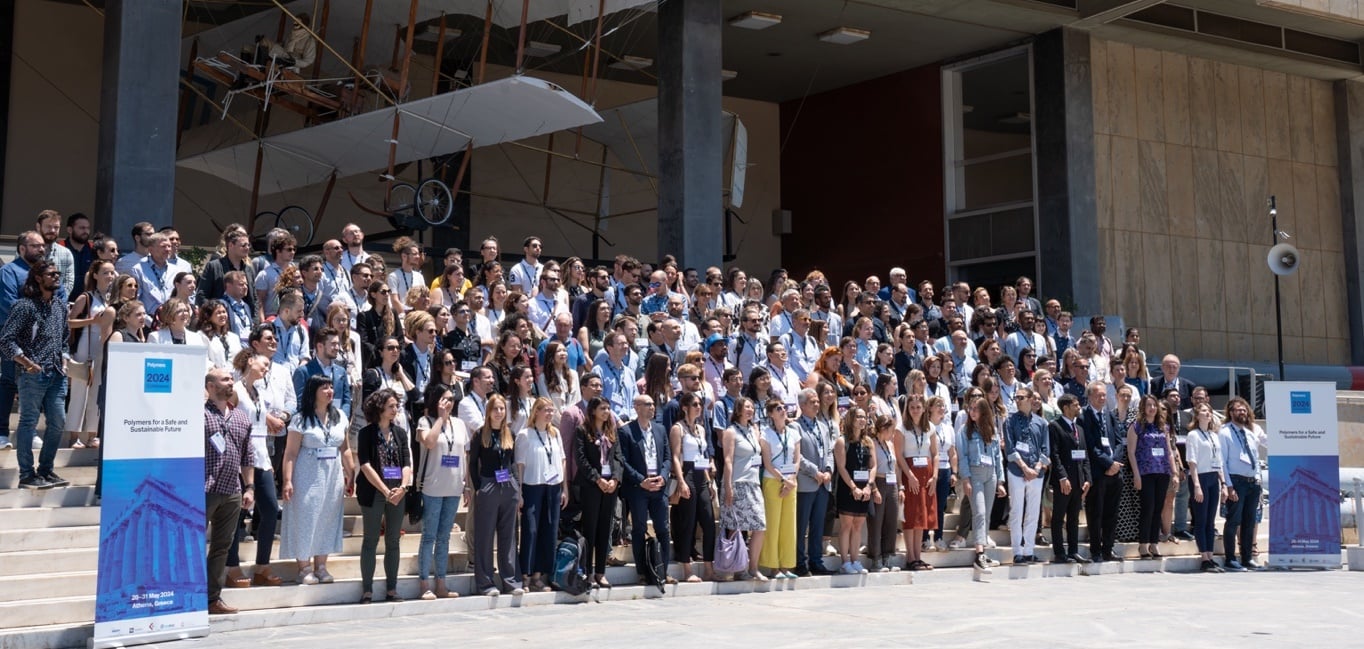
The conference featured three keynote speakers and 12 invited speakers, including esteemed scholars from Europe, Asia, Africa, and Canada. It included 60 selected talks and 189 posters, chosen by the 24 members of the Scientific Committee along with the three Conference Chairs. The event explored the latest scientific advancements and innovations in polymer science, focusing on creating safe, sustainable, and environmentally friendly materials. Emphasizing green polymer chemistry and the use of bioresources, the conference promoted the synthesis of biobased and biodegradable polymers.
The conference featured esteemed scholars from Europe, Asia, Africa, and Canada
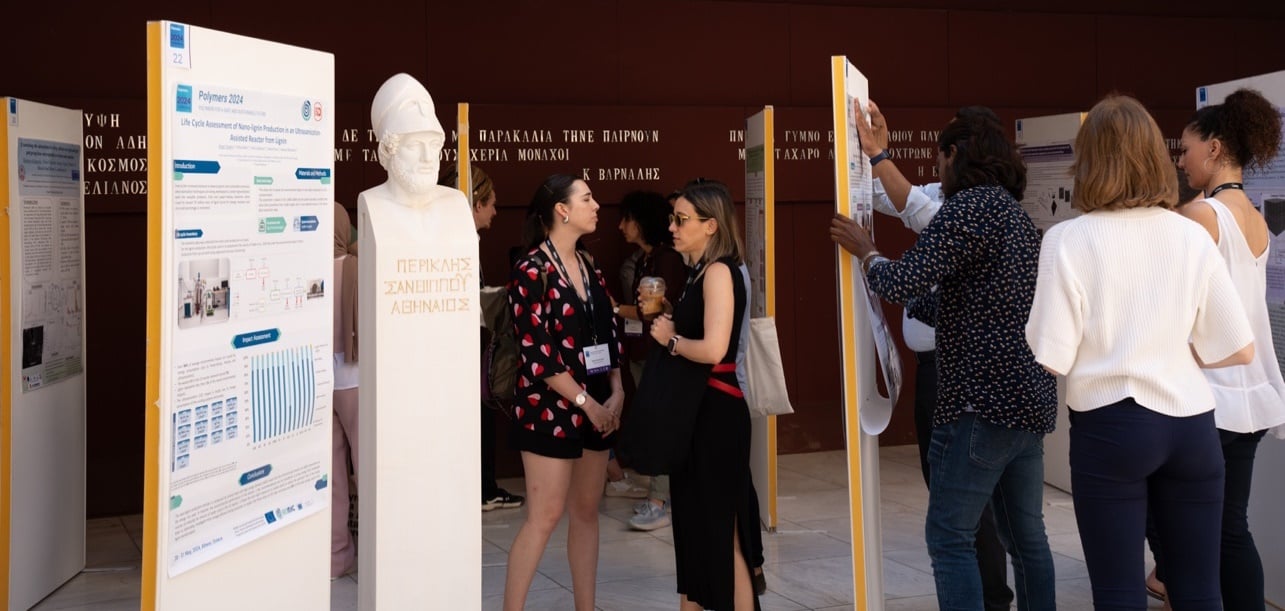
Conference awards
The conference also presented three awards: two sponsored by the journal Polymers – The Best Poster Award (€500) and the Best Oral Presentation Award (€600) – and one sponsored by Ossila, the Best Student Poster Award (€500).
Thank you to our 16 sponsors, three partnering societies (Hellenic Polymer Society, European Polymer Federation, and North American Thermal Analysis Society [NATAS]) and eight media partners.
Upcoming in-person event
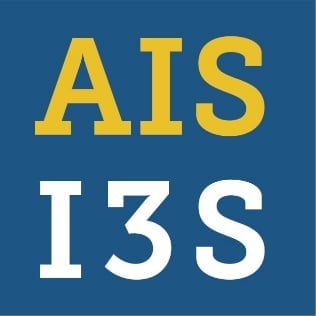
1–4 August, 2024
The 1st International Conference on AI Sensors & The 10th International Symposium on Sensor Science
Location: Singapore
The AI Sensors 2024 Conference will unite innovators and experts in the realms of sensors, sensing technology, and artificial intelligence.
Find more upcoming MDPI events here.
Closing Thoughts
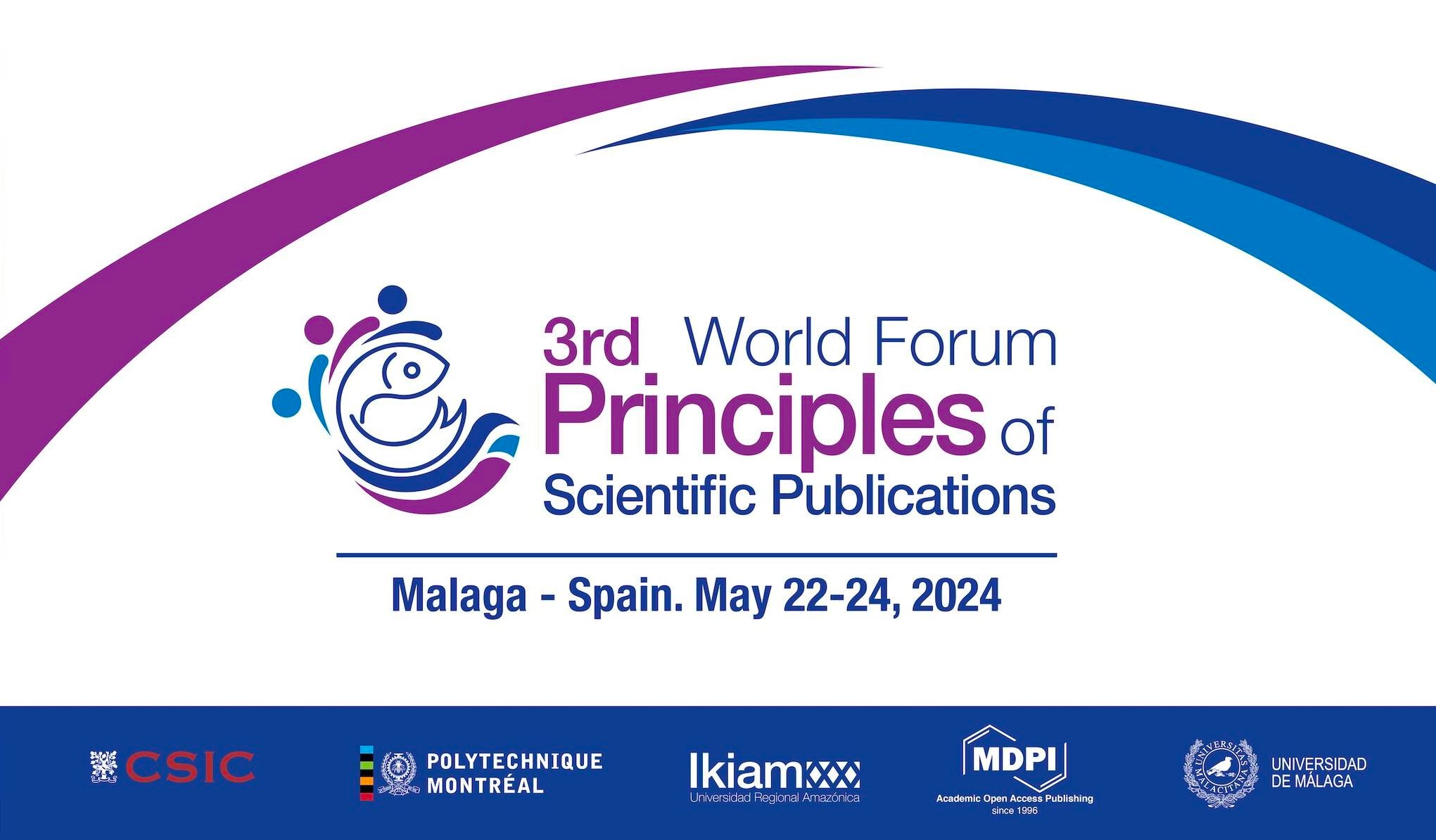
3rd World Forum Principles of Scientific Publications
I’m pleased to share that MDPI sponsored and attended the 3rd World Forum on Principles of Scientific Publications, which took place from 22–24 May in Malaga, Spain. The event brought together academic professionals and leading researchers to discuss critical topics in the realm of publishing and research. Presentation topics included Open Science, AI in Publishing, Predatory Journals, Fake Publications, Challenges for Non-native English Speakers, and more.
“It was great to see strong support from MDPI authors in the audience”
MDPI presentations
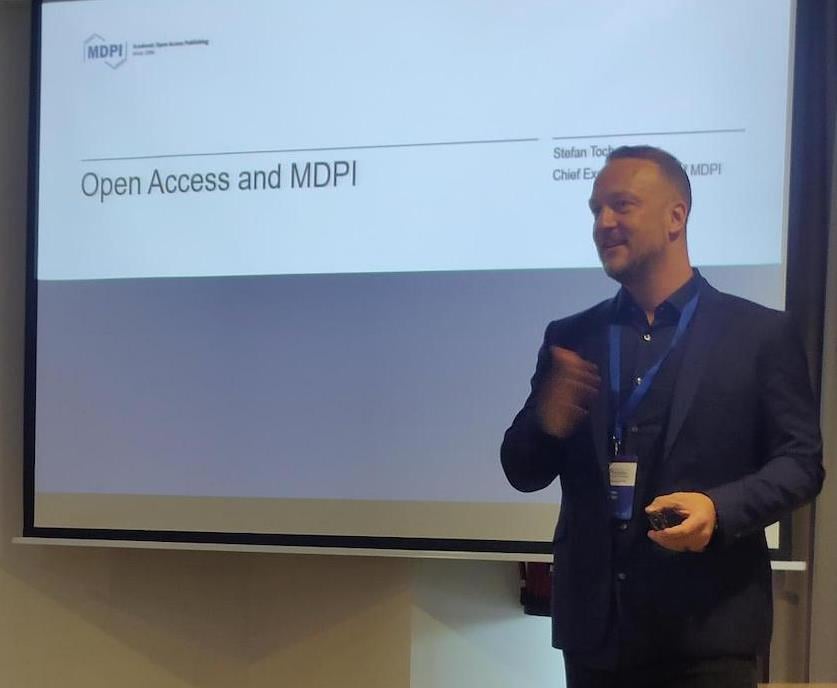
Stefan Tochev (CEO, MDPI) presenting at the 3rd World Forum Principles of Scientific Publications
I had the privilege of attending and presenting at the event, along with my colleague Dr. Enric Sayas (Business Analyst, MDPI) from our Barcelona office, who explored the ethical concerns and opportunities brought by AI in publishing.
I took the opportunity to present on Open Science, the benefits of Open Access, and MDPI’s performance, operations, and investment in ethics. Special thanks to Evan Escamilla (Project Manager, MDPI Books) and Facundo Santomé (Sr. Marketing Manager, MDPI) who also joined the conference.
It was great to see strong support from MDPI authors in the audience who shared their positive experiences publishing with us. Their story reflects the experience of the vast majority of authors who choose to work with MDPI.
We also encountered some conservative views on OA, which created an opportunity for open discussion aimed at addressing concerns about OA and MDPI. Engaging in such discussions is important, as scepticism sometimes arises from misinformation or from a misunderstanding of who we are and how we operate. When we engage in open and honest discussion, we tend to see people getting a better understanding of MDPI, which helps address any misconceptions they may have had.
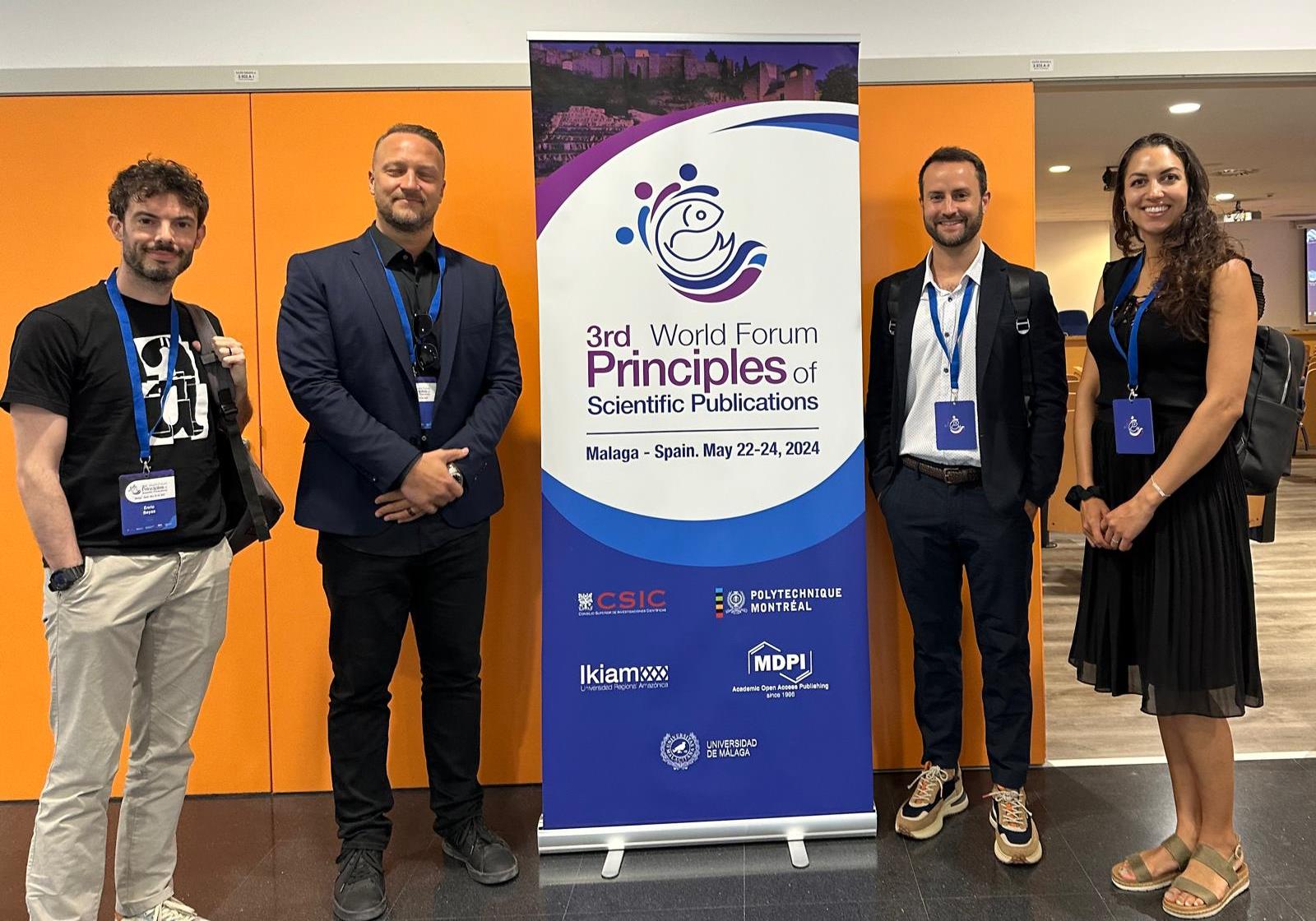
Left to right: Dr. Enric Sayas (Business Analyst, MDPI), Stefan Tochev (CEO, MDPI), Facundo Santomé (Sr. Marketing Manager, MDPI), and Evan Escamilla (Project Manager, MDPI Books) at 3rd World Forum Principles of Scientific Publications
Chief Executive Officer
MDPI AG
30 May 2024
Meet Us at the 9th European Congress on Computational Methods in Applied Sciences and Engineering (ECCOMAS 2024), 3–7 June 2024, Lisbon, Portugal

Conference: 9th European Congress on Computational Methods in Applied Sciences and Engineering (ECCOMAS 2024)
Organization: European Community on Computational Methods in Applied Sciences
Date: 3–7 June 2024
Place: Lisbon Congress Centre, Praça das Indústrias 1, 1300-307 Lisboa, Portugal
MDPI journals will be attending ECCOMAS 2024 as exhibitors. This meeting will be held in Lisbon, Portugal, from 3 to 7 June 2024.
The mission of ECCOMAS is to promote joint efforts of European universities, research institutes, and industries that are active in the broader field of numerical methods and computer simulation in engineering and applied sciences (i.e. computational: solid and structural mechanics, fluid dynamics, acoustics, electromagnetics, physics, chemistry, applied mathematics, and scientific computing) to address critical societal and technological issues with particular emphasis on multidisciplinary applications and disseminate innovative research in the fields of ECCOMAS. The 9th European Congress on Computational Methods in Applied Sciences and Engineering consists of 8 Plenary Lectures, 20 Semi-Plenary Lectures, 75 Keynote Lectures, 188 Minisymposia, 15 Special Technical Sessions, the EYIC Young Investigators Minisymposium, the EYIC Junior Workshop, the 14th PhD ECCOMAS Olympiad, 11 General Sessions, namely, 2578 presentations overall.
The following MDPI journals will be represented:
- Computation;
- Mathematical and Computational Applications (MCA);
- Modelling;
- BioMedInformatics;
- AI;
- AppliedMath;
- Mathematics;
- Algorithms;
- Informatics;
- Foundations;
- Digital;
- Data;
- Energies;
- Smart Cities;
- Information;
- Computers.
If you will be attending this conference, please feel free to start a conversation with us. Our delegates look forward to meeting you in person and answering any questions you may have. For more information about the conference, please visit the following website: https://eccomas2024.org/.
29 May 2024
Mathematics | Top 10 Cited Papers in 2023 in the Section “Computational and Applied Mathematics”
1. “Harmonics Signal Feature Extraction Techniques: A Review”
by Minh Ly Duc, Petr Bilik and Radek Martinek
Mathematics 2023, 11(8), 1877; https://doi.org/10.3390/math11081877
Full text available online: https://www.mdpi.com/2227-7390/11/8/1877
2. “Enhanced Night-to-Day Image Conversion Using CycleGAN-Based Base-Detail Paired Training”
by Dong-Min Son, Hyuk-Ju Kwon and Sung-Hak Lee
Mathematics 2023, 11(14), 3102; https://doi.org/10.3390/math11143102
Full text available online: https://www.mdpi.com/2227-7390/11/14/3102
3. “Supply Chain Demand Forecasting and Price Optimisation Models with Substitution Effect”
by Keun Hee Lee, Mali Abdollahian, Sergei Schreider and Sona Taheri
Mathematics 2023, 11(11), 2502; https://doi.org/10.3390/math11112502
Full text available online: https://www.mdpi.com/2227-7390/11/11/2502
4. “NSGA-II/SDR-OLS: A Novel Large-Scale Many-Objective Optimization Method Using Opposition-Based Learning and Local Search”
by Yingxin Zhang, Gaige Wang and Hongmei Wang
Mathematics 2023, 11(8), 1911; https://doi.org/10.3390/math11081911
Full text available online: https://www.mdpi.com/2227-7390/11/8/1911
5. “Analysis and Forecasting of International Airport Traffic Volume”
by Cheng-Hong Yang, Borcy Lee, Pey-Huah Jou, Yu-Fang Chung and Yu-Da Lin
Mathematics 2023, 11(6), 1483; https://doi.org/10.3390/math11061483
Full text available online: https://www.mdpi.com/2227-7390/11/6/1483
6. “Highly Accurate and Efficient Time Integration Methods with Unconditional Stability and Flexible Numerical Dissipation”
by Yi Ji and Yufeng Xing
Mathematics 2023, 11(3), 593; https://doi.org/10.3390/math11030593
Full text available online: https://www.mdpi.com/2227-7390/11/3/593
7. “Optimizing a Multi-Layer Perceptron Based on an Improved Gray Wolf Algorithm to Identify Plant Diseases”
by Chunguang Bi, Qiaoyun Tian, He Chen, Xianqiu Meng, Huan Wang, Wei Liu and Jianhua Jiang
Mathematics 2023, 11(15), 3312; https://doi.org/10.3390/math11153312
Full text available online: https://www.mdpi.com/2227-7390/11/15/3312
8. “CTOA: Toward a Chaotic-Based Tumbleweed Optimization Algorithm”
by Tsu-Yang Wu, Ankang Shao and Jeng-Shyang Pan
Mathematics 2023, 11(10), 2339; https://doi.org/10.3390/math11102339
Full text available online: https://www.mdpi.com/2227-7390/11/10/2339
9. “A Family of Holomorphic and m-Fold Symmetric Bi-Univalent Functions Endowed with Coefficient Estimate Problems”
by Pishtiwan Othman Sabir, Hari Mohan Srivastava, Waggas Galib Atshan, Pshtiwan Othman Mohammed, Nejmeddine Chorfi and Miguel Vivas-Cortez
Mathematics 2023, 11(18), 3970; https://doi.org/10.3390/math11183970
Full text available online: https://www.mdpi.com/2227-7390/11/18/3970
10. “Approximation of Brownian Motion on Simple Graphs”
by George A. Anastassiou and Dimitra Kouloumpou
Mathematics 2023, 11(20), 4329; https://doi.org/10.3390/math11204329
Full text available online: https://www.mdpi.com/2227-7390/11/20/4329
23 May 2024
Transfer Service in MDPI
We are pleased to announce MDPI’s Transfer Service.
This service provides a convenient method of transferring your manuscript file, along with any reviewer comments, to another journal within our publishing portfolio.
We are committed to helping authors find the right home for their research, and we will provide authors with guidance and technical support through all stages of the transfer process. Authors will be able to choose to transfer in the following two situations:
1. Select alternative journals on submission.
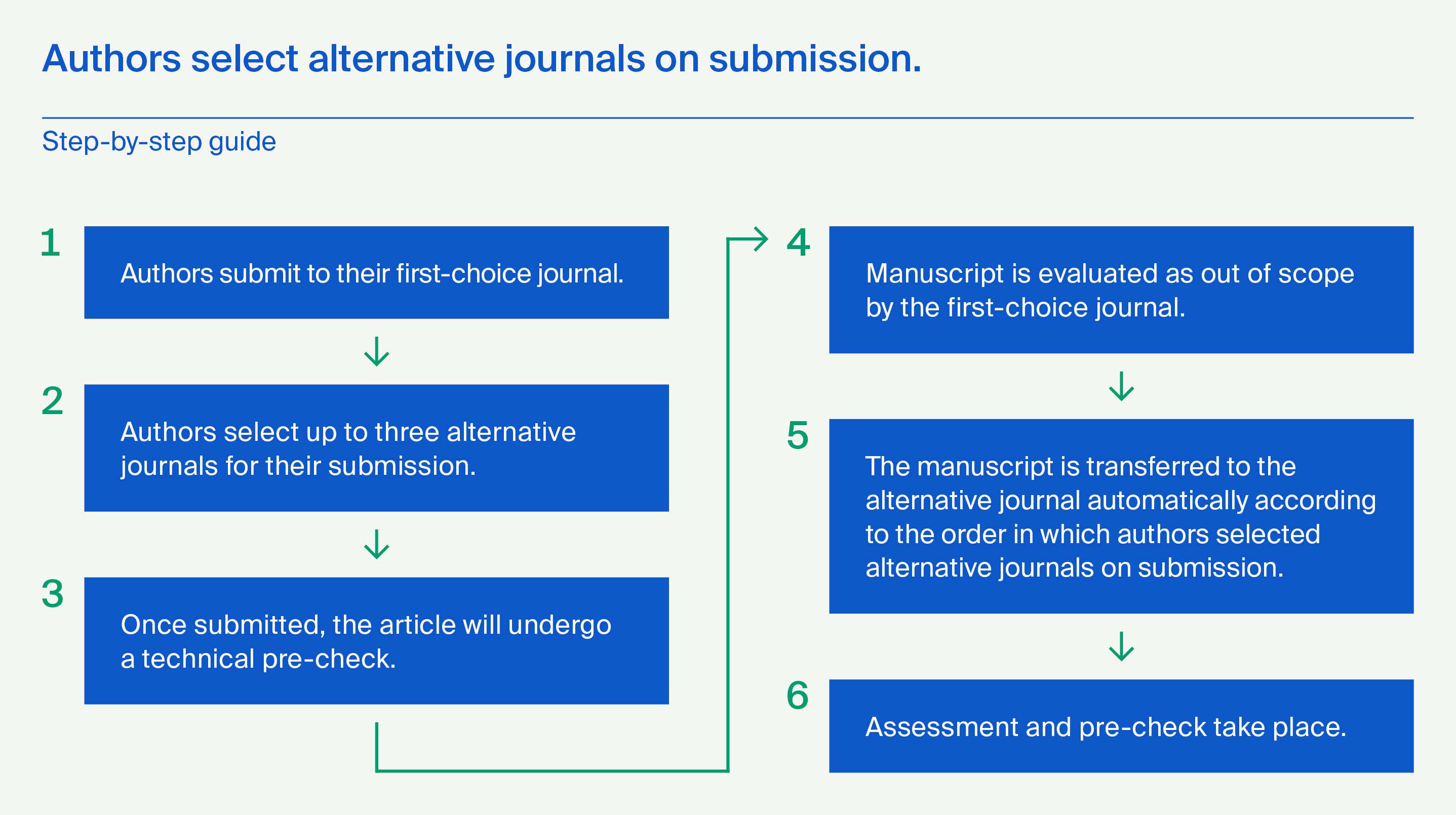
2. Authors are encouraged to transfer manuscripts to other MDPI journals.
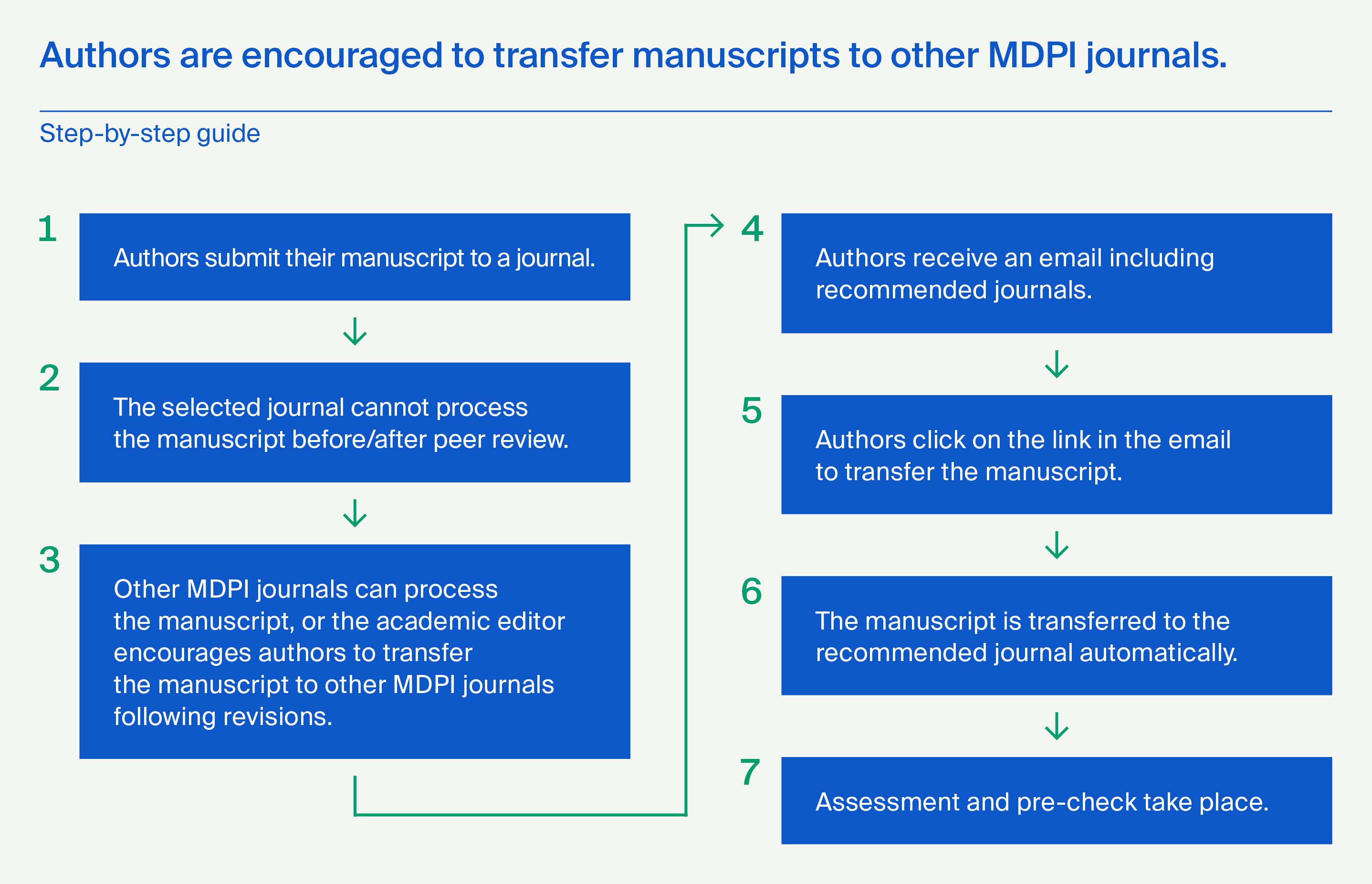
More details about the Transfer Service can be found at the following link:
20 May 2024
Meet Us at the 21st International Congress of Mathematical Physics (ICMP), 1–6 July 2024, Strasbourg, France

MDPI will attend the 21st International Congress of Mathematical Physics (ICMP). We invite researchers from different backgrounds to visit and share their latest ideas with us.
The 21st International Congress of Mathematical Physics (ICMP) will take place in Strasbourg, France. It is planned from 1 to 6 July 2024, at the Palais des Congrès, the main conference center of the city near the European Parliament that is well connected with the historical city center. The International Congress on Mathematical Physics, on its three year cycle, is the most important conference of the International Association of Mathematical Physics, currently presided over by Kasia Rejzner. It will be a major event, where new results and future challenges will be discussed, illustrating the richness and vitality of mathematical physics.
The following MDPI journals will be represented at the conference:
- Mathematics;
- Entropy;
- Plasma;
- AppliedMath;
- Axioms;
- Physchem;
- Symmetry;
- QuBS;
- Physics.
If you are planning to attend the above conference, please do not hesitate to start an online conversation with us. Our delegates look forward to meeting you in person and answering any questions you may have. For more information about the conference, please visit the following website: https://icmp2024.org/.
17 May 2024
Tu Youyou Award—Open for Nominations
In acknowledgment of the groundbreaking achievements of Professor Tu Youyou, the Nobel laureate credited with the discovery of artemisinin, MDPI is proud to announce the Tu Youyou Award. This award, inaugurated in 2016, seeks to honor scholars who excel in the fields of natural products chemistry and medicinal chemistry.
Prize:
- CHF 100,000 in total (If there is more than one winner, the prize will be divided equally amongst the winners);
- An award medal for each winner.
Who should be nominated?
- Scientists with outstanding achievements and contributions in the fields of natural products chemistry and medicinal chemistry.
Who can submit a nomination?
- Academic research institutes
- Universities
- Academic societies
Any personal nominations are not accepted.
How do I submit a nomination?
Candidates’ institutional affiliations need to submit their nominations for final candidates to the Tu Youyou Award Team directly by email after internal screening, and each institution can only nominate a maximum of two candidates for each edition of the Tu Youyou Award. Please note that the nominations cannot be modified once they are submitted and confirmed by the Tu Youyou Award Team.
Required nomination materials:
Nomination Form (Download)
Schedule:
Nomination deadline: 31 December 2024;
Winner announcement: 30 April 2025.
Contact:
Tu Youyou Award Team (tuyouyouaward@mdpi.com)
More information can be found on the Tu Youyou Award official website. For any inquiries, do not hesitate to contact the Tu Youyou Award Team.
16 May 2024
MDPI Romania Author Training Academic Events in April
MDPI Romania sponsored four events over the month of April, contributing author training sessions to each event.
The NutriSciLabs 2024 conference was held at the Carol Davila University of Medicine and Pharmacy on 12 April 2024. Organized by the Association of Students from the Faculty of Pharmacy Studies, the conference aimed to enhance students’ academic writing and research skills, and bolster their confidence in participating in the academic world. Ioana Paunescu, journal relations specialist for MDPI Romania, led the training session. Paunescu first outlined MDPI’s history and core values, then explained academic writing techniques, ethics, and similarity percentages. The presentation covered the entire editorial process, highlighting the amount of attention paid to details throughout manuscript processing. Paunescu also discussed common errors that authors make while writing, and how to avoid such errors.
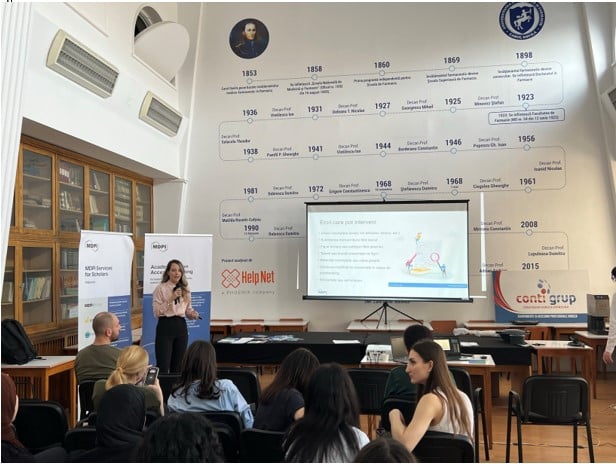
On 13 April 2024, the NextGEN 2.0 Student Conference took place at the Babes-Bolyai University of Cluj-Napoca. NextGen Healthcare organized this event with the university’s European Students’ Society to discuss European and international current affairs. MDPI Romania contributed an author training session called Steps of the Publication Process. Irina Codruta Zaharia, journal relations specialist, began the session with a general introduction of MDPI before diving into different article types, different layout formats, possible journals to submit to, the MDPI submission checklist, and the MDPI editorial process. By explaining the fundamentals of writing and publishing academic papers, Zaharia imparted valuable industry knowledge to the curious minds present. Participants were eager to engage with Zaharia in the subsequent Q&A session.
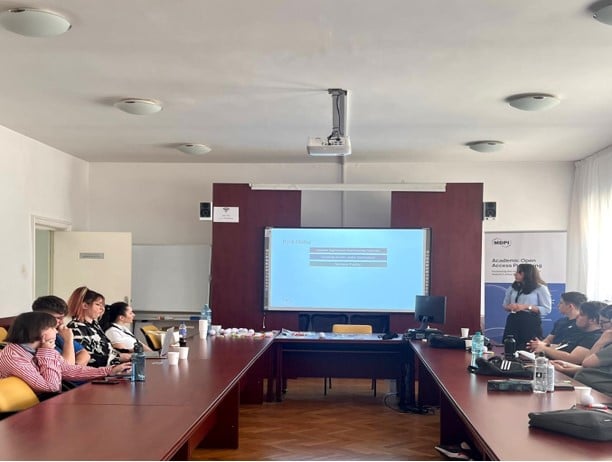
Celebrating its 20th anniversary this year, the International Conference “Students for Students” has long been a gathering place for undergraduate and postgraduate students of all nationalities to present their work and exchange ideas with each other. This year’s conference was held on 18 April 2024, with MDPI Romania contributing an author training session called The World of Open Access. Key speakers included Dr. Norbert Kiss from MDPI Romania and Prof. Dragos Horvath from Strasbourg University. Dr. Kiss discussed the history of open access, differences between open access publishing and traditional publishing, and implications for open access in the future. Attendees expressed keen interest in the subject, approaching Dr. Kiss with questions about academic publishing as well as his career trajectory.
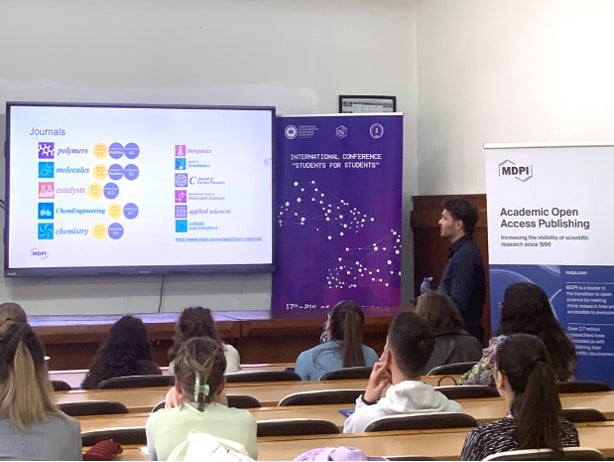
Most recently, on 26 April 2024, MDPI Romania sponsored the National Symposium of Students from Geology and Geophysics Faculties. The AAPG Students Chapter at the Babes-Bolyai University organized this event as an opportunity for geology students from all Romanian universities to present their work and confer with other researchers. Dr. Kiss gave his lecture The World of Open Access at this event as well.
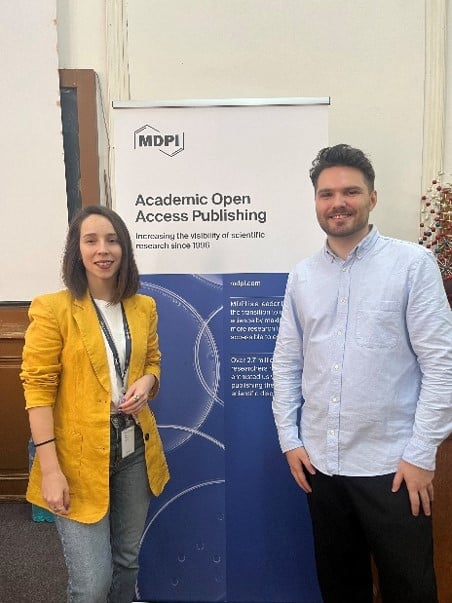
MDPI is thankful to all the participants, speakers, and organizers who attended these events. Through their enthusiasm and dedication, these events were great successes.
15 May 2024
Meet Us at the International Conference on Mathematical Analysis and Applications in Science and Engineering (ICMASC’24), 20–22 June 2024, Porto, Portugal

MDPI will be attending the International Conference on Mathematical Analysis and Applications in Science and Engineering (ICMASC'24), which will be held from 20 to 22 June 2024, in Porto, Portugal.
The conference aims to bring together researchers in every discipline of applied mathematics, science, engineering, industry, and technology, to discuss the development of new mathematical models, theories, and applications that contribute to the advancement of scientific knowledge and practice.
The main topics include the following:
- Ordinary and Partial Differential Equations: Theory and Applications
- Mathematical Modelling involving time fractional ODEs and PDEs
- Integral Equations and Integral Transforms
- Uncertainty Quantification in Mathematical Modelling
- Control Theory, Optimization and their Applications
- Probability, Statistics and Numerical Analysis
- Inverse Problems: Modelling and Simulation
- Computational Methods in Sciences and Engineering
- Fractional Dynamic Systems and Applications
- Fractional Signals and Systems
- Singularities Analysis and Integral Representations for Fractional Differential Systems
- Special Functions Related to Fractional Calculus
- Applications in Biological Systems and Cancer Dynamics
- Applications to Electrical Engineering, Electronics, Electromagnetism, Electrochemistry, finance and Economics, Fractional Earth Science, lmage Processing, Robotics, Automatic Control, Mechanics, Viscoelasticity, Thermal Engineering
- History of Fractional Calculus
- Mathematics Education
The following MDPI journals will be represented:
If you are considering attending this conference, we warmly welcome you to visit our booth and interact with our representatives. We are eager to meet you in person and assist you with any queries you may have.
For more information about the conference, please visit the official website at https://www2.isep.ipp.pt/icmasc/.
15 May 2024
Mathematics 2022 Best Paper Award—Winner Announced
We are pleased to announce the winners of the Mathematics 2022 Best Paper Award. All papers published from 1 January 2022 to 31 December 2022, in Mathematics (ISSN: 2227-7390) were considered for the award. After a thorough evaluation of the originality and significance of the papers, citations, and downloads, six winners were selected.
Articles:
First Prize: CHF 800 plus the chance to publish a paper free of charge after peer review.
“Regression Analysis of Macroeconomic Conditions and Capital Structures of Publicly Listed British Firms”
by Elmina Homapour, Larry Su, Fabio Caraffini and Francisco Chiclana
Mathematics 2022, 10(7), 1119; https://doi.org/10.3390/math10071119
Second Prize: CHF 500 plus the chance to publish a paper free of charge after peer review.
“Fractional Calculus and Time-Fractional Differential Equations: Revisit and Construction of a Theory”
by Masahiro Yamamoto
Mathematics 2022, 10(5), 698; https://doi.org/10.3390/math10050698
Third Prize: CHF 300 plus the chance to publish a paper free of charge after peer review.
“Practical Exponential Stability of Impulsive Stochastic Food Chain System with Time-Varying Delays”
by Yuxiao Zhao and Linshan Wang
Mathematics 2023, 11(1), 147; https://doi.org/10.3390/math11010147
“Fractional Differential Equations with the General Fractional Derivatives of Arbitrary Order in the Riemann–Liouville Sense”
by Yuri Luchko
Mathematics 2022, 10(6), 849; https://doi.org/10.3390/math10060849
Reviews:
Second Prize: CHF 500 plus the chance to publish a paper free of charge after peer review.
“Survey on Synthetic Data Generation, Evaluation Methods and GANs”
by Alvaro Figueira and Bruno Vaz
Mathematics 2022, 10(15), 2733; https://doi.org/10.3390/math10152733
Third Prize: CHF 300 plus the chance to publish a paper free of charge after peer review.
“The Discrete Dipole Approximation: A Review”
by Patrick Christian Chaumet
Mathematics 2022, 10(17), 3049; https://doi.org/10.3390/math10173049
Please join us in congratulating the winners of the Mathematics 2022 Best Paper Award. We would also like to take this opportunity to thank all of our authors for your continued support of Mathematics.
Mathematics Editorial Office



